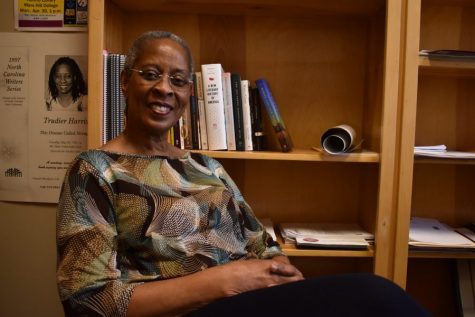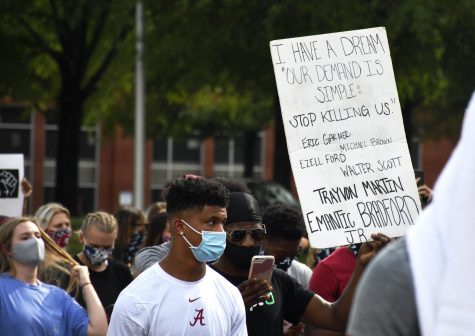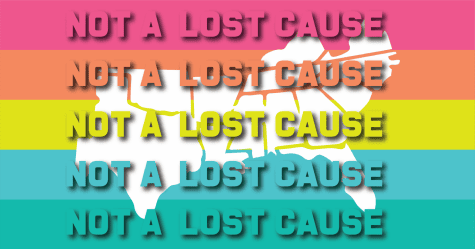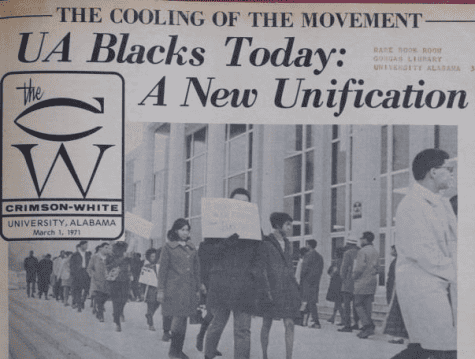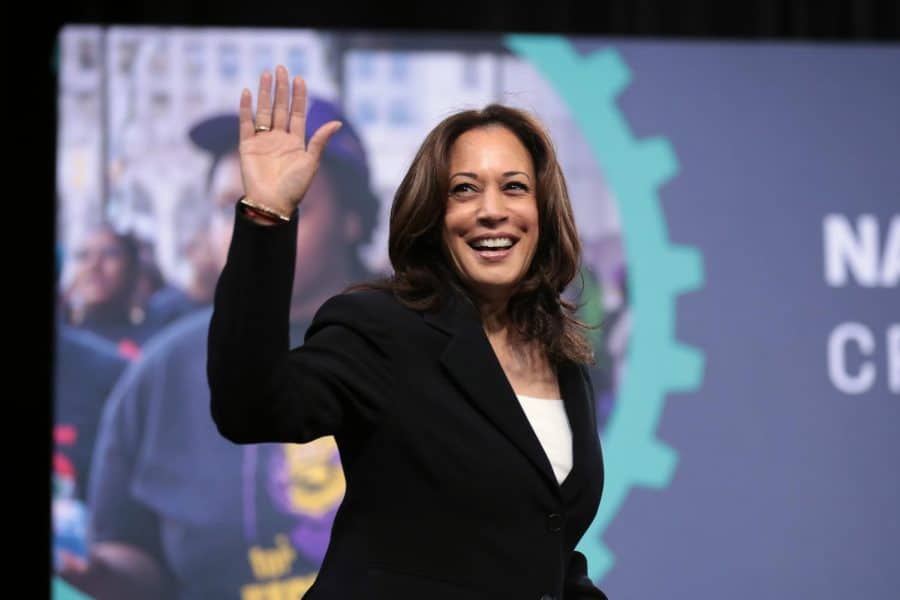‘We are bigger than the first and the only’: Black women reflect on Kamala Harris’ historic vice presidency
Kamala Harris is the first woman, first Black person and first South Asian person to be Vice President. Some women on campus are ready for being the first to be long behind them.
Read more from our Black History Month Edition:
After a tumultuous and stressful election season, Kamala Harris made history when she was sworn in as the first female, African American and Asian American vice president of the United States. But being the first person to break down a barrier is never an easy feat.
It comes with intense scrutiny and backlash, even for politicians like Harris who have had successful careers in politics for years. For women and women of color, this barrier can be even more difficult to break down because of the negative stereotypes and assumptions that the public and other politicians can throw at them.
While there’s no doubt that Vice President Harris has shattered a glass ceiling, many Black women are celebrating this historic accomplishment by working even harder for representation in politics.
Malea Benjamin, a freshman majoring in political science, said the lack of female and Black representation is what drives her to pursue her degree in politics.
Though she believes that Harris’s recent achievements are a great step toward increasing the representation of women in government, Benjamin said America shouldn’t become complacent.
Before she became the 49th Vice President of the United States, Harris served as the California Attorney General and a U.S. Senator. According to the Center for American Women Politics statistics, as of 2019, only 9% of Congress members and 4.5% of the statewide elected executives were women of color.
G. Christine Taylor, the vice president of the University’s Office of Diversity, Equity and Inclusion, said Americans have historically assumed that the vice presidency is a job that can only be done by men because of our social systems.
“We are often socialized to think about who can and who can’t and who has the ability and who doesn’t have the ability,” Taylor said. “Representation says that while you may have grown up thinking that so-and-so couldn’t do this, now there’s somebody who is doing it.”
Decisions made by politicians can greatly help or hurt communities in more ways than one. From food stamps to healthcare, politics are ingrained in our daily lives.
UA alumna Teryn Shipman, a political advocate and blogger based in Atlanta, said the lack of representation in politics has given her more room to explore and pave her own path for herself. Using this to her advantage, Shipman continually fights for Black women.
“Everything is political,” Shipman said. “No matter what we do, we can’t get around the fact that the food that we eat is political. The air that we breathe is political. Even the decisions we make are political. It all has consequences. So I think it’s important for people that look like me to be able to make decisions and advocate on my behalf in political spaces. They know what it’s like to move and navigate the world as a Black woman.”
REPRESENTATION MATTERS
Having representation in politics isn’t just about having someone who looks like you in government. It’s about having a voice who knows what needs to be done in order to make the lives of Black women better.
“A lot of decisions that affect Black women’s lives are being made, and we have no say in it,” Benjamin said. “It angers a bunch of us. So I think that it’s important for us to start stepping up and taking the initiative to become more active in our political system.”
Representation matters in spaces other than politics, too.
According to The University of Alabama, over 80% of the students enrolled and 79% of the faculty identify as white. While the statistics are becoming more diverse every year, many believe it’s not happening fast enough.
To help increase representation, Benjamin’s current goals on campus are to work to increase diversity, equity and inclusion in the organizations and communities that she is part of.
She said race issues have effects on the economy and other social issues, so when leaders try to make amends for the wrongs shown to marginalized communities, it can uplift the entire country.
And although people across the country are fighting for justice no matter what, Benjamin emphasized that it’s not easy being a woman or a person of color in the political arena.
In fact, Vice President Harris has seen her own fair share of media backlash. From the outrage following her Vogue magazine cover to the scrutiny she’s endured for her criminal justice record, Harris has had to consistently defend her choices.
“Women are held under a microscope constantly, especially Black women,” Benjamin said. “It can feel like there’s no room for mistakes at all.”
Benjamin said we should hold our politicians accountable, but understand that we’re all human at the end of the day.
“So, Black women especially have to watch what they do, what they say, what they wear because everything can be twisted out of context,” Benjamin said, noting that constant scrutiny has harsh impacts on mental health. “It’s draining, and that can be dangerous.”
Despite the backlash that Vice President Harris has received, many have noted the importance of having a Black woman in a position of political power, particularly one that has historically been filled by white men.
‘WE DESERVE MORE’
The New York Times reported that Harris’s win in the election “prompted explosions of joy within explosions — of pride, elation, relief and a sense of hard-fought accomplishment. The sentiment was shared by women generally, and Black women specifically.”
But while many Black women are celebrating Harris’s achievement as the first woman of color in the vice presidency, they are also fighting for more representation that surpasses the “first.”
“It is difficult to be the first and the only,” Taylor said. “People try to force you into a box of meeting the expectations that they have of you and who you ought to be. What I would like to see is us moving to a time where we’re not saying ‘This is the first fill-in-the-blank.’ Instead, we should have the expectation of diversity in all aspects of life.”
Although Harris has done a lot for the representation of Black and South Asian women in politics, Shipman emphasized that representation still has a long way to go.
“Being the first and the only is not a good feeling and I don’t think that it’s something that should be celebrated,” Shipman said. “It’s difficult to step into that place and environment every day and do the work that needs to be done because you’re alone. You don’t necessarily feel that people are uplifting your voice… It is a success and an accomplishment, but I know we can do better, and we deserve more.”
While Harris’s achievement is undoubtedly important for the representation of women of color, many have pointed out that women of color need more than just representation in politics. They need politicians who will fight for their rights and fix the issues prevalent in their lives.
“We should fight hard as hell to get more Black and brown people in these rooms,” Shipman said. “We are bigger than the first and the only. This is the start of what politics can look like when we look at our Congress members like Cori Bush and Ayanna Pressley. We are starting to see actual representation that looks like us and is actually fighting for the issues that we face in our daily lives.”



